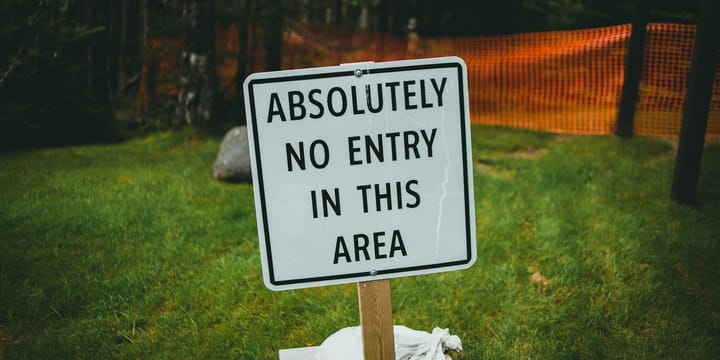How Not To Regulate the Middle Mile

In our main story, Konstantinos Komaitis writes that Italy is quietly laying the groundwork to regulate CDNs like telecom companies, a move that threatens the open internet and could open the door to network fees across Europe.
But first...
We’ve got a few exciting updates to share from The Internet Exchange:
First up, we’re now part of Ghost’s new social web beta program which means our content can flow more smoothly across Mastodon and Bluesky. Alongside our weekly newsletter, we’ll be sharing some links early on these new platforms, so give us a follow if you want a sneak peek at what’s coming each week. (And don’t @ us about the long usernames—DO @ us about any other UX/UI suggestions as we are documenting our experience with interoperability as we evolve.)
When we asked you a few weeks back what social networks you wanted to engage with us on, the most popular request was for a Signal group. That’s now live for paid subscribers, so make sure to upgrade your subscription if you want to join our space to chat about internet governance and digital rights, swap links, and help shape what we cover next.
Another request was for a LinkedIn presence, and we’ve just launched a page where we’ll share highlights from the newsletter and more. We’d love your follow because we need to hit 150 followers to unlock the newsletter feature!
Support the Internet Exchange
If you find our emails useful, consider becoming a paid subscriber! You'll get access to our members-only Signal community where we share ideas, discuss upcoming topics, and exchange links. Paid subscribers can also leave comments on posts and enjoy a warm, fuzzy feeling.
Not ready for a long-term commitment? You can always leave us a tip.
This Week's Links
Elsewhere in the Fediverse
- Looking for new accounts besides ours to follow in the Fediverse? Here’s a handy starter pack that includes IX’s Mallory Knodel. https://fedidevs.com/s/NDg3
- Interview with Bluesky’s CEO Jay Graber on Bluesky’s quest to build nontoxic social media, with a quote from Mallory about #FreeOurFeeds. https://www.newyorker.com/magazine/2025/04/14/blueskys-quest-to-build-nontoxic-social-media
Internet Governance
- Tech giants aligning with Trump signals a dangerous concentration of power, but countries can prevent techno-fascism by regulating digital services and protecting intellectual property. https://www.project-syndicate.org/commentary/democracies-can-counter-trump-musk-technofascism-by-courtney-c-radsch-2025-04
- Temu's U.S. Google Shopping ad pull caused its app ranking to plummet, highlighting its reliance on paid advertising and the impact of new trade tariffs. https://searchengineland.com/temu-pulls-us-google-shopping-ads-454260
- Effective digital governance begins with understanding the layered systems that make it possible says Hisham Ibrahim. https://labs.ripe.net/author/hisham_ibrahim/why-effective-digital-governance-begins-with-understanding-the-internet-itself
- Jasmine McNealy’s new article examines the neglect of rural communities in AI policy, highlighting the disconnect between technology policy and rural needs, and calls for greater rural participation in policy-making. https://academic.oup.com/edited-volume/59762/chapter-abstract/508609253
Digital Rights
- The TAKE IT DOWN Act (S. 146) advances in U.S. Congress, aiming to remove non-consensual intimate imagery but risking broad censorship, user privacy violations, and reliance on flawed automated filters without proper safeguards. https://www.eff.org/deeplinks/2025/04/congress-takes-another-step-toward-enabling-broad-internet-censorship
- ICE has paid Palantir millions to enhance its database for more effective targeting in mass deportations, amid controversial arrests and scrutiny of Palantir's role in U.S. immigration policies. https://www.404media.co/ice-just-paid-palantir-tens-of-millions-for-complete-target-analysis-of-known-populations
- Replacing federal workers with unreliable AI chatbots would be a dystopian nightmare, potentially leading to dangerous errors in critical tasks like healthcare and immigration write Asmelash Teka Hadgu and Timnit Gebru. https://www.scientificamerican.com/article/replacing-federal-workers-with-chatbots-would-be-a-dystopian-nightmare
- So you want to be a dissident? A practical guide to courage in Trump’s age of fear. https://www.newyorker.com/news/the-weekend-essay/so-you-want-to-be-a-dissident
Technology for Society
- AI 2027 explores scenarios based on trend extrapolations, expert feedback, and previous forecasting successes, predicting that the impact of superhuman AI over the next decade will surpass that of the Industrial Revolution. https://ai-2027.com
- Read about InterHop, a French non-profit using NGI Zero funding to develop open source health research tools. https://www.apc.org/en/news/interhop-digital-freedoms-and-open-source-software-healthcare
- LibResilient is a decentralized content delivery network to safeguard access to information and human rights in the digital context. https://www.apc.org/en/news/libresilient-human-rights-digital-context-and-right-side-history
- Trump ordered national security review of potential tariffs on critical minerals imports, including rare earths essential for electronics, energy storage, and defense technologies. https://www.reuters.com/markets/commodities/trump-signs-order-launching-probe-into-reliance-imported-critical-minerals-2025-04-15
- In the Broadband Bottlenecks and Bureaucracy podcast, Sascha Meinrath discusses why billions in broadband funding are stuck, delaying high-speed internet for underserved communities. https://communitynetworks.org/content/broadband-bottlenecks-and-bureaucracy-whats-holding-internet-back-episode-642-community
- Google signed the first deal of its kind to develop geothermal energy projects in Taiwan. https://www.theverge.com/news/648979/google-geothermal-energy-power-purchase-agreement-asia-taiwan
- The first in Ars Technica’s 3-part series remembering the people and ideas that made the internet. https://arstechnica.com/gadgets/2025/04/a-history-of-the-internet-part-1-an-arpa-dream-takes-form
- How Trump’s stock market chaosis dividing Wikipedia: Inside the strange, high-stakes debate over one word—and who gets to define history in real time. https://slate.com/technology/2025/04/trump-news-2025-stock-market-crash-wikipedia-controversy.html
- A useful resource for those needing stock photography to illustrate AI, no robots or bottles of A1 sauce. https://betterimagesofai.org
- Watch: Laura Braunstein talks about how to preserve crosswords and other puzzle archives for the future. https://www.youtube.com/watch?v=JOjCFDGoFKE&list=PLkE1WUhZIP7QKDo7EBT1Seap2dmYG8VJb&index=4
Privacy and Security
- The U.S. government ended funding yesterday, April 16 for the Common Vulnerabilities and Exposures (CVE) program, which is vital for identifying and managing cybersecurity vulnerabilities. Then a foundation was launched to secure its future and then, in a last-minute reversal, the government extended support again… for 11 months anyway. What a roller coaster! https://www.forbes.com/sites/kateoflahertyuk/2025/04/16/cve-program-funding-cut-what-it-means-and-what-to-do-next
- WhatsApp is testing a new "advanced chat privacy" option to control whether others can export chats or automatically save media. Yes please. https://www.theverge.com/news/644408/whatsapp-meta-chat-privacy-setting-block-export
- 4chan is down after an alleged hack, with a hacker gaining access to the site's hosting server, doxing its moderation team and many users, and leaking its source code. Will it mark the end of the infamous forum? https://www.engadget.com/cybersecurity/4chan-the-internets-most-infamous-forum-is-down-following-an-alleged-hack-142516392.html
- A whistleblower claims that DOGE accessed and possibly exfiltrated sensitive data from the National Labor Relations Board, including information on union organizing and ongoing legal cases. https://www.npr.org/2025/04/15/nx-s1-5355896/doge-nlrb-elon-musk-spacex-security
- ICANN's new anti-abuse rules, introduced in April 2024, look to be having the desired effect. https://www.sidn.nl/en/news-and-blogs/icanns-anti-abuse-measures-look-to-be-having-the-desired-effect
- The European Commission is issuing burner phones and basic laptops to some U.S.-bound staff over spying fears. https://www.ft.com/content/20d0678a-41b2-468d-ac10-14ce1eae357b
- Court document reveals locations of WhatsApp victims targeted by NSO Group’s notorious spyware Pegasus. https://techcrunch.com/2025/04/09/court-document-reveals-locations-of-whatsapp-victims-targeted-by-nso-spyware
Upcoming Events
- The interdisciplinary summerschool on privacy provides an intensive one week academic post-graduate programme teaching privacy from a technical, legal and social perspective July 6 - 11. Netherlands. https://isp.cs.ru.nl/2025
- The Learning Across Differences Ideas Forum will discuss The Connection Opportunity, a report on rebuilding social connections across differences, featuring speakers from Walmart.org, More in Common US, and the University of Massachusetts Amherst. April 23, 2pm ET. Online. https://cof.org/event/learning-across-differences-ideas-forum-connection-opportunity
- OpenForum Academy Symposium 2025 brings together academics and practitioners to explore the role of Open Source and Open Technologies, producing policy-relevant research for decision-makers. November 18-19. Rio de Janeiro, Brazil. https://symposium.openforumeurope.org
- State of the Machines: launch of the 2025 Ranking Digital Rights Index (Big Tech Edition) which assesses the transparency of 14 of the world's largest tech companies on a range of policies and practices affecting their users' freedom of expression and privacy. May 1, 10am ET. Washington DC. https://forms.office.com/pages/responsepage.aspx?id=MGc2aegqeUun1f_kC8N1m5m3ttIduSxCilvOsoYO9ddUM1FRWkJVWFpBTDRZVEFBNUM2NTNBVDc2Si4u&route=shorturl
Careers and Funding Opportunities
- The Open Knowledge Foundation is seeking an emerging and vibrant communication agency from the Global Majority to support a high-impact global campaign through video production and design services. https://okfn.org/en/jobs/creative-agencies-for-global-open-tech-campaign
- eQualitie is looking for an experienced iOS and MacOS developer to join our decentralization focused project teams, working on Ceno, a peer-to-peer based web browser and Ouisync, a peer-to-peer file/folder synchronization application and library. https://www.linkedin.com/jobs/view/4210694256
- APC is seeking a host institution to nominate an Africa Policy Coordinator for the LocNet Initiative, supporting policy development for community-centered connectivity in Kenya, Nigeria, and South Africa. Deadline: May 2, 2025. https://www.apc.org/en/news/call-organisations-nominate-and-host-africa-policy-coordinator-local-networks-locnet
- Center for Countering Digital Hate is hiring a Chief Development Officer, Director of US Public Affairs, EU Policy Officer and Development Manager. https://counterhate.com/jobs
Opportunities to Get Involved
- Submit an Abstract for your paper or presentation at the OpenForum Academy Symposium 2025 by June 1. https://pretalx.com/ofa-symposium-2025/cfp
- Open Call: Join the AI Openness & Equity Policy Leadership Cohort to explore how AI openness can advance equity, accountability, and public interest, with a focus on developing actionable policy recommendations for the EU and beyond. Express your interest by April 21. https://aspirationtech.org/blog/open_call_join_ai_openness_equity_policy_leadership_cohort
- The Interledger Foundation is inviting original research contributions on digital financial inclusion and payment interoperability for its 2025 call for papers. Call ends May 16. https://submit.interledger.org/submit/324574/2025-interledger-foundation-call-for-paper
What did we miss? Please send us a reply or write to editor@exchangepoint.tech.
How Not To Regulate the Middle Mile
By Konstantinos Komaitis
Italy is quietly laying the groundwork to regulate CDNs like telecom companies, a move that threatens the open internet and could open the door to network fees across Europe.
AGCOM Targets CDNs
The Italian telecoms regulator, AGCOM, launched a public consultation last month seeking to investigate the regulatory treatment of Content Delivery Networks (CDNs) under the European Communications Code (EECC) Directive 2018/1972. CDNs are distributed networks of servers located across geographic regions to deliver digital content like videos, images, software updates, and websites more quickly and reliably to end users. By caching and serving content from servers closer to the user, CDNs reduce latency, ease congestion on networks and improve performance making them essential infrastructure for modern internet services.
At the moment, CDNs are treated like unregulated infrastructure or value-added services. AGCOM is examining whether CDNs should be treated more like telecom providers from a regulatory standpoint, by bringing them under the general authorization regime set out in the EECC, which applies to providers of electronic communications services. This would involve extending the general authorization regime to two categories of actors:
- Content and Application Providers that own, manage, or control a CDN within Italy to distribute their content to end customers.
- CDN providers that operate infrastructure physically located within Italy.
If adopted, this change would force CDN operators and content providers to register with AGCOM and comply with regulatory obligations originally intended for traditional telecom services. These could include burdensome reporting requirements, interoperability mandates, and potentially even financial contributions. These measures could undermine the agility that CDNs bring to the internet.
Italy’s Pattern of Overreach: Piracy Shield
Italy has long been a problem child for the open internet. Its poorly written "Piracy Shield" law was intended to combat online copyright infringement by blocking access to websites and services that illegally stream or distribute pirated content. It allows rights holders to file complaints with long lists of domains they want blocked, and gives ISPs 30 minutes to block those domains. As a result, mistakes have been made that affect the entire country, like blocking many sites that use the popular security service Cloudflare, and blocking the entirety of Google Drive. There is no transparency around how blocking decisions are made, or how the system works and the fallout from these missteps has caused widespread, disproportionate disruption to the open internet.
Appeasing Telcos by Shifting the Burden
Now, Italy wants to expand its regulatory overreach to CDNs in an effort to appease telecommunications companies who have long pushed for large content providers to contribute financially to network infrastructure. The inclusion of CDNs in the general authorization regime will set a very treacherous precedent, giving telcos a potential legal basis to demand network fees or impose regulatory conditions on CDN operators. This comes just as Europe is working on the upcoming Digital Networks Act, where such frameworks could be expanded or codified.
What AGCOM is trying to do is clear: it’s attempting to push controversial network fees through the "backdoor" by invoking Article 26 of the ECC, which governs how interconnection and access disputes between electronic communications providers are resolved. By classifying CDNs and Content and Application Providers (CAPs) as electronic communications service providers, AGCOM could trigger a formal dispute resolution mechanism, allowing telcos to challenge CAPs and CDN providers over traffic arrangements and potentially claim compensation or impose mandatory access terms.
Europe Must Defend the Open Internet
Now more than ever, Europe must defend the open internet, especially if it wants to attract new talent and become a region that champions innovation and democracy. Additionally, if Europe wants to attract new talent and set the tone for the next chapter of the digital economy, expanding regulatory overreach like this is simply not the way to do it.
As Europe starts thinking about how to build a strong defense ecosystem, it must support networks and connections that operate in a transparent way. The open internet is crucial for defense and national security, enabling information sharing, threat identification, and public awareness, while also offering opportunities for technological advancement and intelligence gathering. Frankly, Italy should know better!
The consultation can be found here: https://www.agcom.it/provvedimenti/delibera-55-25-cons#allegati




Comments ()